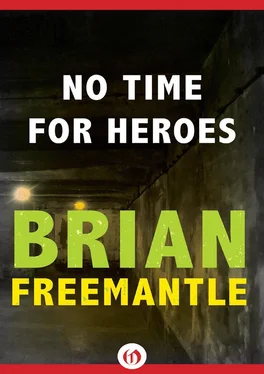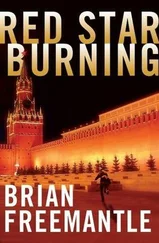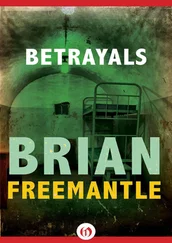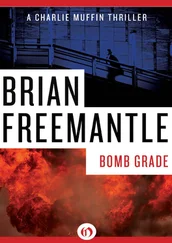Brian Freemantle - No Time for Heroes
Здесь есть возможность читать онлайн «Brian Freemantle - No Time for Heroes» весь текст электронной книги совершенно бесплатно (целиком полную версию без сокращений). В некоторых случаях можно слушать аудио, скачать через торрент в формате fb2 и присутствует краткое содержание. Жанр: Триллер, на английском языке. Описание произведения, (предисловие) а так же отзывы посетителей доступны на портале библиотеки ЛибКат.
- Название:No Time for Heroes
- Автор:
- Жанр:
- Год:неизвестен
- ISBN:нет данных
- Рейтинг книги:5 / 5. Голосов: 1
-
Избранное:Добавить в избранное
- Отзывы:
-
Ваша оценка:
- 100
- 1
- 2
- 3
- 4
- 5
No Time for Heroes: краткое содержание, описание и аннотация
Предлагаем к чтению аннотацию, описание, краткое содержание или предисловие (зависит от того, что написал сам автор книги «No Time for Heroes»). Если вы не нашли необходимую информацию о книге — напишите в комментариях, мы постараемся отыскать её.
No Time for Heroes — читать онлайн бесплатно полную книгу (весь текст) целиком
Ниже представлен текст книги, разбитый по страницам. Система сохранения места последней прочитанной страницы, позволяет с удобством читать онлайн бесплатно книгу «No Time for Heroes», без необходимости каждый раз заново искать на чём Вы остановились. Поставьте закладку, и сможете в любой момент перейти на страницу, на которой закончили чтение.
Интервал:
Закладка:
‘I will tell him it’s my decision,’ undertook Oskin.
It would be necessary for Pavin to create his customary immaculate files, whatever transpired in America. Should he talk about a second, duplicate copy of everything going to Pavin? Not necessary, Danilov decided: files had to be kept.
‘There will be no independent decisions, taken without consultation with us,’ insisted Vorobie.
It was ridiculous for them to imagine they could control an enquiry more than five thousand miles away. It would have been equally ridiculous for him to argue. Instead Danilov said: ‘My authority has been established with the embassy?’
‘Obviously we expect you to respect the position of the ambassador and his senior staff.’
‘And the security rezident?’
‘Yes,’ said Oskin.
Restriction upon restriction, thought Danilov. The diplomatic staff would claim superiority of rank and the security officer would probably ignore him. ‘I think I understand what I am expected to do,’ said Danilov. What he understood was that he had been effectively trussed and gagged, made totally impotent: and that the public declarations of Russian open-handed co-operation were meaningless. Their understanding, determined Danilov: not his.
‘On the subject of proper conduct,’ picked up Vorobie. ‘Serov’s widow has complained you were rude and unsympathetic.’
‘I was neither,’ refuted Danilov. ‘Every question was necessary.’
‘What did you learn?’ asked Oskin.
‘Virtually nothing. She says she did not know of her husband’s association with Michel Paulac.’ Danilov looked directly at Vorobie. ‘Why was Serov’s tour of duty extended so often?’
‘Proven ability,’ said the Deputy. ‘It happens occasionally. We take advantage of it.’
The vagueness intrigued Danilov, like so many other things about this meeting. He no longer had any feeling of euphoria. ‘Anything else?’
‘You will live in the diplomatic compound,’ insisted Oskin.
Where he would be under effective supervision, Danilov recognised. He was hardly going to be able to conduct an investigation.
‘You will make no unauthorised statements,’ continued Oskin. ‘Any public announcements will come from here.’
‘This is not going to be an easy assignment,’ said Vorobie.
Not made any easier by this encounter, thought Danilov. Close to insubordination, he said: ‘You haven’t left me in any doubt about that.’
Pavin intercepted him at the office door, to warn him out of Ludmilla’s hearing of Metkin’s fury. ‘I had to tell him where you were,’ apologised the man.
‘What else could you have done?’ agreed Danilov.
‘He’s waiting.’
Metkin actually rose from his chair, as if he were going physically to attack, when Danilov entered the room, and for several seconds the man was unable to speak properly. When he did, the demand to know why Danilov had gone to the Foreign Ministry without telling him was disjointed and stuttered. Danilov insisted he’d expected Metkin to be summoned separately.
‘Liar! I want to know all that went on: all that was discussed!’ declared Metkin. The words were stretched by anger.
‘I have to communicate direct with Vasili Oskin,’ disclosed Danilov. It really didn’t seem important any more to fight this man.
Metkin’s apoplexy was absolute. His mouth opened and closed, without words: his body shifted and moved, uncoordinated. ‘You have to come through me!’
‘Deputy Minister Oskin has countermanded that instruction. You are to be officially told of the decision. You are to receive duplicates, of course.’
‘Why?’
‘I don’t know.’
‘You manoeuvred this!’
‘I did not.’
‘Liar!’ said Metkin again.
It was impossible for there to be any connection between Metkin and the ministry official. Which removed one uncertainty but left everything else hanging in the air; Metkin’s incandescent concern was surely more than simple anger about senior officials going over his head? ‘You could take the matter up personally with Deputy Minister Oskin.’
Metkin’s anger seeped away, as if a plug had been pulled. Quietly, invitingly, the man said: ‘I think we should talk about things. Reasonably.’
It was his choice, Danilov realised. Metkin was seeking a special arrangement, wrongly believing he had influence he didn’t possess: seeking the sort of accommodation almost everyone in the Bureau reached every day of their lives. The what’s-in-it-for-me philosophy, on this occasion most definitely and hopefully for the absolute benefit and protection of Anatoli Nikolaevich Metkin. It could be easily manipulated, Danilov knew: sufficient to bring himself out of the wilderness of isolation. To what? Ever-smiling friends in shiny suits and real gold. Agreements reached in whispers. Easy access to everything he’d once had and for which Olga craved. Proper money: dollars, not lavatory-paper roubles. An easy life. A disease carrier among those already infected, everyone knowing the symptoms, everyone knowing there wasn’t a cure because no-one wanted to be cured. He said: ‘I don’t think there is anything for us to discuss.’
Metkin’s crumpled face appeared to collapse upon itself. ‘Bastard!’ he said.
It wasn’t any longer an angry remark, Danilov recognised. Metkin was frightened. Which, he supposed, made two of them.
‘What am I going to do while you’re away?’ Larissa had kicked the covering off the bed and was lying with her hands cupped behind her head, to bring her breasts up more fully.
‘Stay faithful,’ said Danilov.
‘Will you stay faithful to me in America?’
‘You know I will.’
‘How long will you be away?’
‘I don’t know.’ Danilov had already realised his trip to Washington temporarily relieved the pressure with either Olga or Larissa.
She realised it, too. ‘I want things settled when you get back.’
‘Yes.’
‘I mean it.’
‘So do I.’
Olga was at the kitchen table when Danilov got back to Kirovskaya. She smiled up at him, offering a sheet of paper upon which she had been writing. ‘My shopping list,’ she announced. ‘I’m glad you’re going away.’
So was he, thought Danilov. But Larissa was right: as soon as he got back he’d have to settle everything. He was coming close to using the thought of Yevgennie Kosov lashing out vindictively as an excuse for doing nothing. Like so many other excuses, before.
‘And this came, in the mail.’
The franking on the envelope showed the delivery had taken almost a week, fast by Moscow postal standards. It contained a single sheet of paper. On it were three names, none of which Danilov recognised: certainly they weren’t people attached to the Organised Crime Bureau. Lapinsk had printed one word above his signature: Prahsteet. It means sorry.
‘What is it?’ asked Olga.
‘I’m not sure,’ said Danilov.
The ambush was perfectly staged. The three canvas-covered Chechen trucks carrying the looted word processors from the Domodedovo airport warehouse became separated on their way into the city because the traffic was unexpectedly heavy on the former Andropov Prospekt, even that late at night. The rear lorry was split from the convoy by at least one hundred yards when they turned off the Ulitza Masinostrojenij. It was a regular route – which was a mistake – and the Ostankino group were waiting at the darkest section.
The Chechen lorry was blocked, front and back, by two trucks that emerged from the side road near the bridge. Two Chechen guards who tried to fight had their skulls fractured by iron staves. The attackers – a separate group from those transferring the word processors – occupied the brief time it took by breaking the legs of the drivers and the third guard. Before they left they set fire to the Chechen vehicles. The men with the fractured skulls were left lying too close and sustained second degree burns that disfigured them for life.
Читать дальшеИнтервал:
Закладка:
Похожие книги на «No Time for Heroes»
Представляем Вашему вниманию похожие книги на «No Time for Heroes» списком для выбора. Мы отобрали схожую по названию и смыслу литературу в надежде предоставить читателям больше вариантов отыскать новые, интересные, ещё непрочитанные произведения.
Обсуждение, отзывы о книге «No Time for Heroes» и просто собственные мнения читателей. Оставьте ваши комментарии, напишите, что Вы думаете о произведении, его смысле или главных героях. Укажите что конкретно понравилось, а что нет, и почему Вы так считаете.












